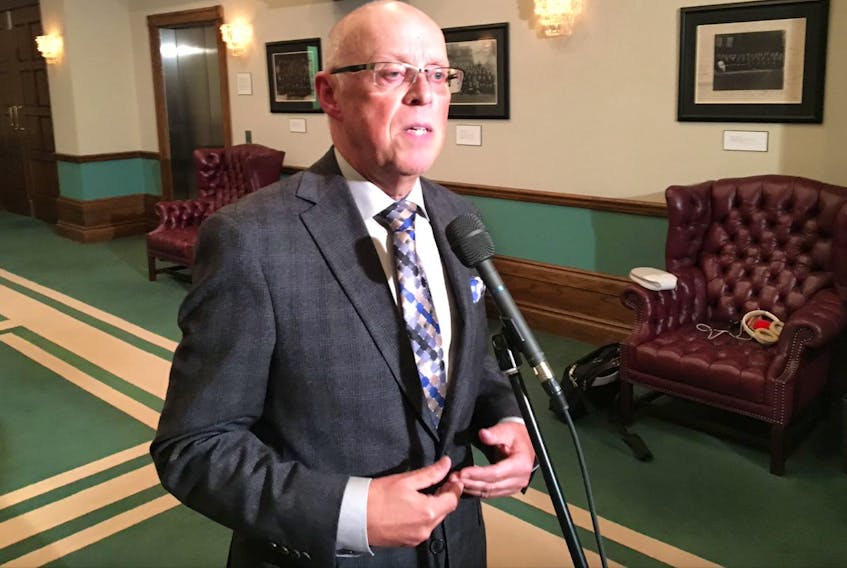ST. JOHN'S, N.L. — Health Minister John Haggie says he’s sad to have to join a national class-action lawsuit stemming from the opioid crisis, but it’s the right thing to do.
Last week, the House of Assembly passed the Opioid Damages and Health Care Costs Recovery Act, the second province to sign onto the lawsuit. Alberta passed legislation later in the week to become the third province officially on board with the class action.
The legislation would allow the province to recover costs to the health-care system as a result of the damage done by opioids to the general population as a direct result of drug manufacturer Purdue Pharma.
Speaking in debate over the bill, Haggie says opioid manufacturers have done irreparable damage to the province and the country with their over-prescription and hiding the negatives effects of the drugs.
“They have deliberately misled prescribers and deliberately misled the public by concealing evidence that they had in their possession that would have told them and allowed prescribers to know of the full dangers of these drugs and they withheld it simply to increase market share and become simply the most successful drug pushers this province has ever seen,” said Haggie.
“Our problem … has been around prescription opioids and they have been prescribed because the medical profession, the pharmacists, the nurse practitioners were essentially told there was no downside to these drugs at all and that was blatantly and knowable false at the time those statements were made by employees of Purdue and representatives of the Sackler family.”
According to the Department of Health and Community Services, there have been 14 opioid-related deaths in Newfoundland and Labrador from January to June of this year. In 2018, there were 10 opioid-related deaths reported, with 33 in 2017 and 18 in 2016.
From January to March, there were nine hospitalizations related to opioids. There were 67 in total in 2018, 84 in 2017, and 57 in 2016.
The first seven months of this year have also seen a large amount of medication used to treat opioid addiction, such as methadone and suboxone. From January to July, 2,874 prescriptions were dispensed. In 2018, the total was 2,764. From June to December in 2017, 2,281 such prescriptions were issued in Newfoundland and Labrador.
Justice Minister Andrew Parsons says it’s unlikely any money won from the lawsuit would go directly to the victims, instead it would be used to recover the costs of the crisis to the provincial government, and therefore taxpayers. Parsons says he's unsure how much N.L. will claim, but the costs of the crisis have been immense.
"Every province is different. You look across Canada, I think in the last three years the public health agency said there were 12,800 opioid-related deaths in the country. We've had a small percentage of that, but when you look at the proportion of the province, it's a significant portion of our population," he said.
"Then, you look at hospitalization rates, you look at the money spent on additions, overdoses. There's so many things to go in here. One can imagine that it's going to be a pretty significant claim."
The result of the class action could be years away. A similar class action, launched against the tobacco industry, has been on-going since 2001, when then-premier Roger Grimes launched the Tobacco Health Care Costs Recovery Act. As reported earlier this year, the province has spent $850,000 in legal fees on that class action, which has yet to go to trial.
RELATED









